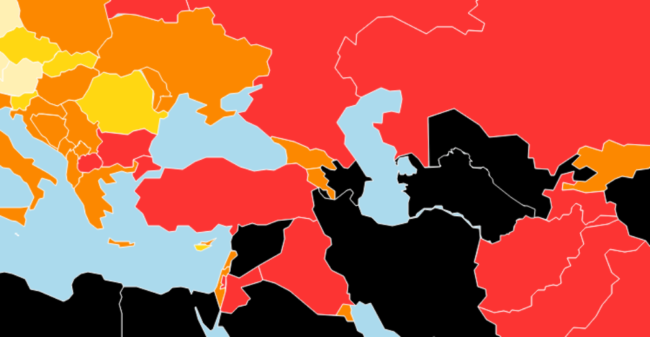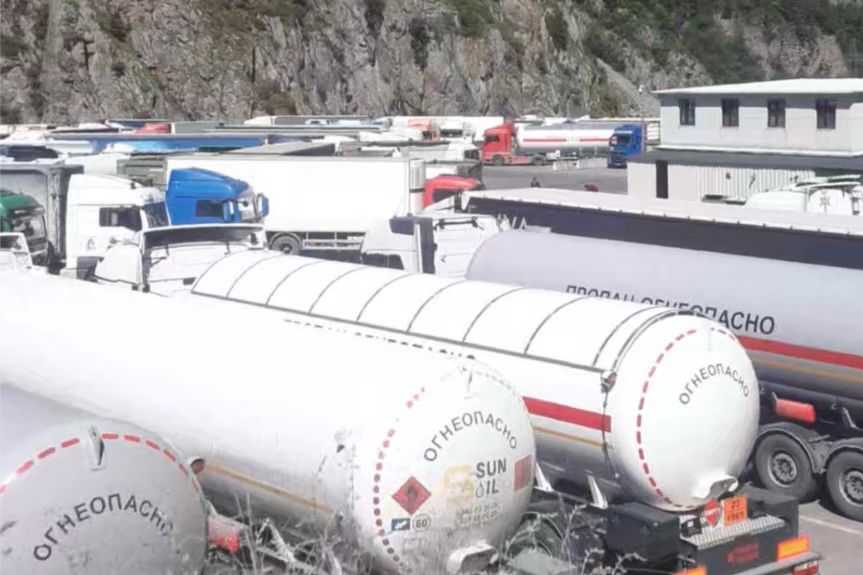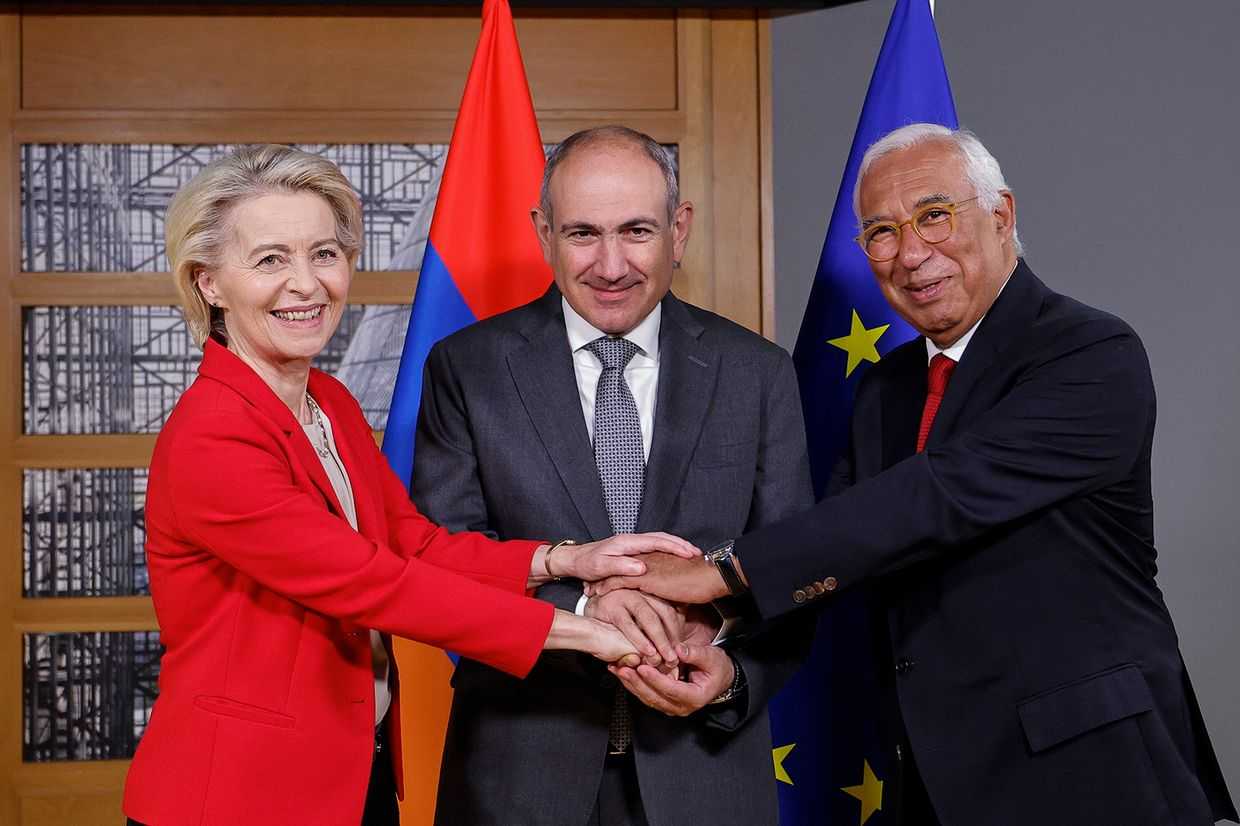

 According to an annual report by international media rights group Reporters Without Borders (RWB), Georgia remained 64th out of 180 countries in the group’s Press Freedom Index. Georgia placed highest amongst countries in the Caucasus, with Armenia coming in 79th and Russia and Azerbaijan lagging behind at 148th and 162nd.
According to an annual report by international media rights group Reporters Without Borders (RWB), Georgia remained 64th out of 180 countries in the group’s Press Freedom Index. Georgia placed highest amongst countries in the Caucasus, with Armenia coming in 79th and Russia and Azerbaijan lagging behind at 148th and 162nd.
Rustavi 2 a ‘test’ for Georgia
RWB praised reforms by the Georgian authorities which have improved the media landscape in the country, including in media ownership transparency, satellite TV pluralism, and an overhaul of the broadcasting regulatory authority.
However, the report also noted that the media continues to be ‘very polarised’ in Georgia, and that despite some progress, media owners often call the shots on editorial content.
‘The war for ownership of the main TV channels is a source of concern for the future of pluralism. The fate of the main national opposition TV channel, Rustavi 2, will serve as a test’, the report read.
[Read more about the Rustavi 2 case on OC Media]
However, the report did not mention recent developments at the Georgian Public Broadcaster, which announced controversial plans to suspend all political talk shows, citing plans to reorganise the station and upgrade equipment and content.
Police violence against journalists in Armenia
Armenia has slipped five places, down from 74th in the 2016 Index. Print media is diverse and polarised, investigative journalism prospers on the Internet, but pluralism lags behind in the broadcast media, the report said.
On a brighter note, RWB hailed the Ilur.am news website and Hraparak newspaper’s important legal victory in October 2015, after the constitutional court issued a ruling upholding the confidentiality of journalists’ sources. However, according to the report, police violence against journalists continues and still goes unpunished.
‘In July 2016, a dozen journalists were injured while covering the use of force to break up a demonstration’, the report claimed.
Imprisonment of independent journalists in Azerbaijan
RWB slammed President Ilham Aliyev’s regime for ‘waging a relentless war against his remaining critics’ since 2014.
Imprisonment of independent journalists and bloggers, harassment, beatings, blackmail, and bribes have contributed to Azerbaijan’s low rating in the report:
‘Some independent media, such as Zerkalo and Azadlig, have been completely economically stifled. Others, such as Radio Azadlig (the RFE/RL), have been closed by force. In a bid to silence the most recalcitrant (or those who continue to resist in exile, such as Emin Milli and Ganimat Zahid), the authorities also harass family members’, the report read.
It was also mentioned that, in response to international pressure, the regime released famous imprisoned journalists Khadija Ismayilova at the start of 2016, but arrested many others in the months that followed.
‘Draconian laws’ and media propaganda in Russia
‘The pressure on independent media has grown steadily since Vladimir Putin’s return to the Kremlin in 2012’, with draconian laws and website blocking, the report said. It underlined the challenges Russia faces in terms of media freedom and pluralism:
According to the report, leading independent news outlets have either been brought under control or throttled out of existence. ‘As TV channels continue to inundate viewers with propaganda, the climate has become increasingly oppressive for those who try to maintain quality journalism or question the new patriotic and neo-conservative’.
The growth in the number of bloggers receiving prisons sentences for their activity on online social networks was also mentioned in the report. Declaring leading human rights groups as ‘foreign agents’ was also criticised.
‘The oppressive climate at the national level encourages powerful provincial officials far from Moscow to crack down even harder on their media critics’, the authors wrote.







